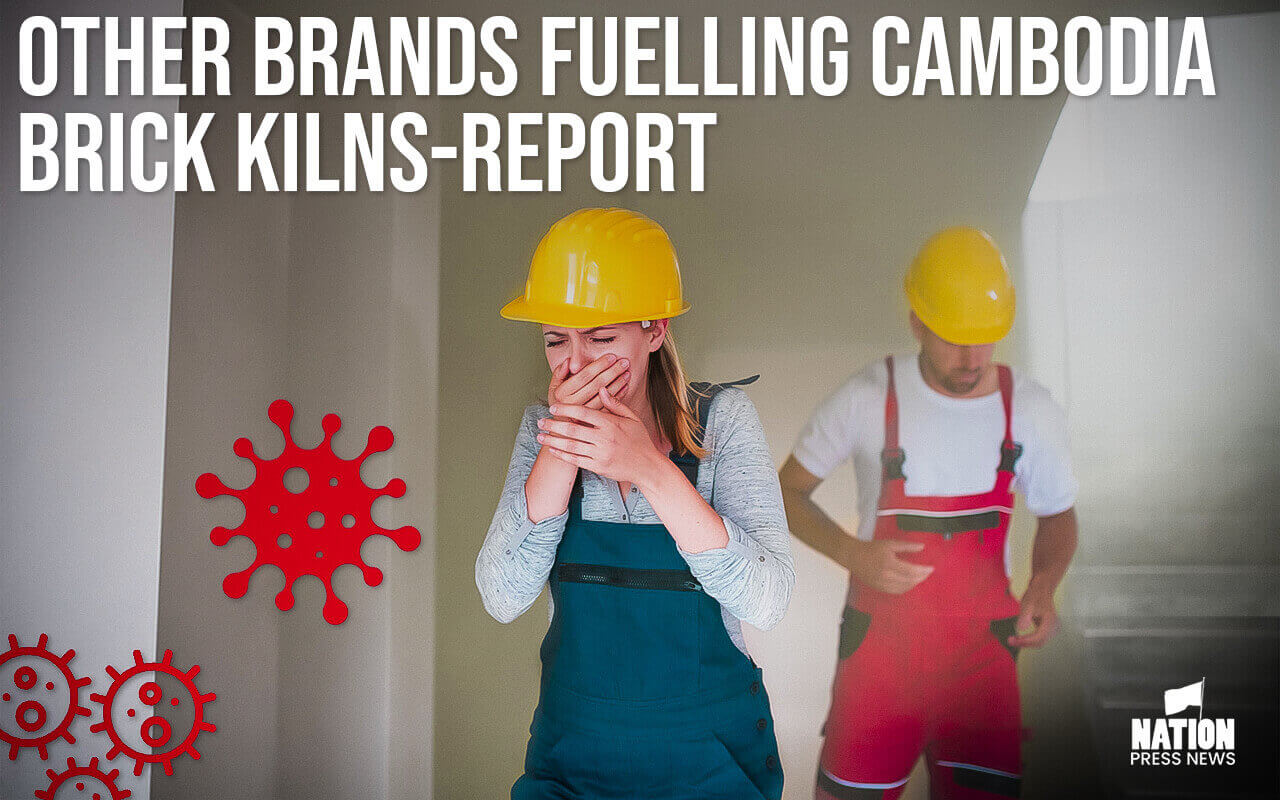Waste from Adidas, Walmart, and other brands fuelling Cambodia brick kilns-report
According to research released on Monday by a local rights group, waste from at least 19 foreign companies, including Adidas and Walmart, is being used to fuel kilns in Cambodian brick factories, and some workers are becoming unwell as a result.
The Cambodian League for the Promotion and Defense of Human Rights, abbreviated LICADHO in French, based its report on visits to 21 brick factories in Cambodia’s capital Phnom Penh, and neighboring Kandal province between April and September, as well as interviews with current and former workers.
It discovered that pre-consumer garment waste from the companies, comprising fabric, plastic, rubber, and other materials, was being burned at seven plants. According to the report, the manufacturers were burning clothing trash to save money on fuel.
“Several workers reported that burning garment waste caused them headaches and respiratory problems; another worker reported that it made her feel especially unwell during her pregnancies,” according to the news release.
Several firms, including Primark and Lidl, stated they were looking into the situation.
Burning garment waste can release substances toxic to humans if combustion conditions aren’t carefully managed, and the ashes can also contain high levels of pollutants, according to an internal 2020 study by the U.N. Development Programme which measured emissions from garment factory incinerators in Cambodia that burn garment waste, and which was seen by Reuters.
According to the paper, these harmful compounds include dioxins, which can cause cancer. The UNDP did not respond to the report.
According to a separate 2018 investigation by UK scientists at Royal Holloway, University of London, garment scraps frequently contain harmful chemicals such as chlorine bleach, formaldehyde, and ammonia, as well as heavy metals, PVC, and resins used in the manufacturing process.
According to the UK investigation, brick manufacturing workers experienced frequent migraines, nosebleeds, and other diseases.
Adidas, C&A, LPP’s Cropp and Sinsay, Disney, Gap, Old Navy, Athleta, Karbon, Kiabi, Lululemon Athletica, Lidl Stiftung & Co’s Lupilu, Walmart’s No Boundaries, Primark, Reebok, Sweaty Betty, Tilley Endurables, Under Armour, and Venus Fashion are among the brands mentioned in the LICADHO report.
Adidas, which sources from 16 Cambodian companies, said it has launched an investigation to see whether garbage is being diverted from authorized disposal routes to brick kilns.
According to Adidas’ Cambodian environmental policy, all waste materials from garment suppliers must be disposed of, either at an approved waste-to-energy facility that is completely regulated and includes air quality regulations, or at government-licensed recycling centers.
Lidl stated that it takes the conditions reported by LICADHO extremely seriously and that investigations have begun, but that it could not provide any additional information.
LPP stated that it was unaware that its textile waste was being burned in brick kilns and has informed its Cambodian representatives in charge of placing orders. LPP planned an awareness day for its Cambodian agents and manufacturers in early 2024, with a particular emphasis on waste management.
Primark, which sources from 20 Cambodian factories, has stated that it is looking into the matter. Sweaty Betty did not respond to particular findings but stated that the company works closely with suppliers to guarantee full compliance with its environmental code of conduct.
Tilley Endurables stated that it was “very concerned” by the findings and that it only works with factories that have passed audits.







